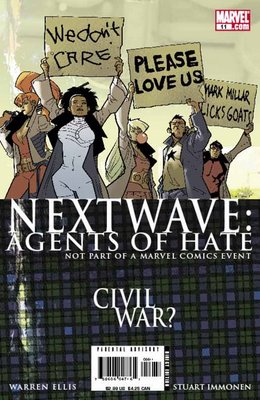 I am a bad literary Canadian.
I am a bad literary Canadian.
Of the hundreds of books in my apartment, a scant few were written by Canadian authors. Many of those I have are leftovers from a Canadian Literature course I took ten years ago, and another two are Margaret Atwood books I bought with the best of intentions but still relegated to the shelf unread.
I’m not sure why this is. Part of it is probably due to the Canadian publishing industry being fairly small. Part of it – and perhaps it’s unfair – is my impression that “Canadian Literature” often tends to feel like it’s about history, geography, and the overall experience of being Canadian.
It’s not personal. Maybe I’m just ignorant.
But Canada Reads comes along, and I think, okay, maybe I can give something a shot. And Nicolas Dickner’s Nikolski doesn’t seem like the traditional, stereotypical Canlit. The back cover promises “garbage-obsessed archaeologists, pirates … sea snakes, several very large tuna fish, an illiterate deep-sea diver, a Commodore 64…”
Really, it had me at Commodore 64. I was ready to engage with Canadian Literature. I was eager, even.
When I got to page nine, I wanted to throw the book across the room. I wanted to punch Nicolas Dickner in the face, or at least say unpleasant things about his mother.
Have you ever met someone and taken an instant, possibly irrational, dislike to them? Perhaps it’s the particular pitch of their voice, or the way they laugh, or maybe they say one single stupid thing when you first meet. They could be a perfectly lovely person, friendly and intelligent and interesting, but it doesn’t matter: You hate them anyway. You hate them every time you see them, and you want to stab yourself with a fork every time someone else appears to enjoy their company.
Nikolski is that guy. It may mean well and be a perfectly adequate book, but I will always hate it with a consuming passion.
The first chapter of Nikolski finds the narrator sorting his deceased mother’s belongings and coming across several old diaries. He learns the story of her move from Quebec to Vancouver and her attempts to learn English and start a new life. After five years, she found herself pregnant, and returned home.
My mother bought a train ticket to Montreal, and we crossed the continent in reverse, she curled up in her seat, me nestled in the depths of her uterus, an imperceptible comma in an as yet unwritten novel.
“An imperceptible comma in an as yet unwritten novel?” Seriously?
It would be one thing if it were supposed to sound stupid. If the tone were overtly comedic, as opposed to merely quirky, I might have let it pass. But it’s not supposed to be funny. It’s supposed to be clever. It’s so adorably clever, you can’t help but be struck by how clever and adorable it is.
Look, I like clever. I even like adorable sometimes. If Oscar Wilde’s brain were to be cloned and implanted into a puppy, I would be all over it.
But cleverness always appears less clever when it is shouted boldly from the rooftops. It begins to grate when it is plastered on billboards. And it is insufferably agonizing when it launches its own cable television station.
Yes, I know it’s only one sentence. But it is a sentence that I truly loathe. I hate ascribing motivation to authors, but it feels so desperately calculated to appear intelligent and literary. Perhaps it’s not that deliberate, and it’s just a phrase Dickner liked beyond reason. But it’s still a linguistic baby that should have been smothered in the crib in a much earlier draft.
To be fair, it may not be Nicolas Dickner’s fault. He wrote Nikolski in French, and perhaps that sentence is less irritating in Dickner’s mother tongue. Maybe I really want to punch translator Lazer Lederhendler.
(I have conflicting feelings on this front. On the one hand, I really fucking hate that sentence. On the other, Lazer is a very cool name. He should be a character in Tron. )
Maybe I’m being silly. Maybe I’m overreacting. Maybe I’d enjoy Nikolski if I gave it a second chance.
But sometimes, you’ve got to trust your first impressions. And while I can admit that I probably shouldn’t follow through on my immediate reaction to Nikolski and go about punching authors and/or translators, there are some things you just can’t put behind you.
I’m sorry, Nikolski. We can never be friends.



